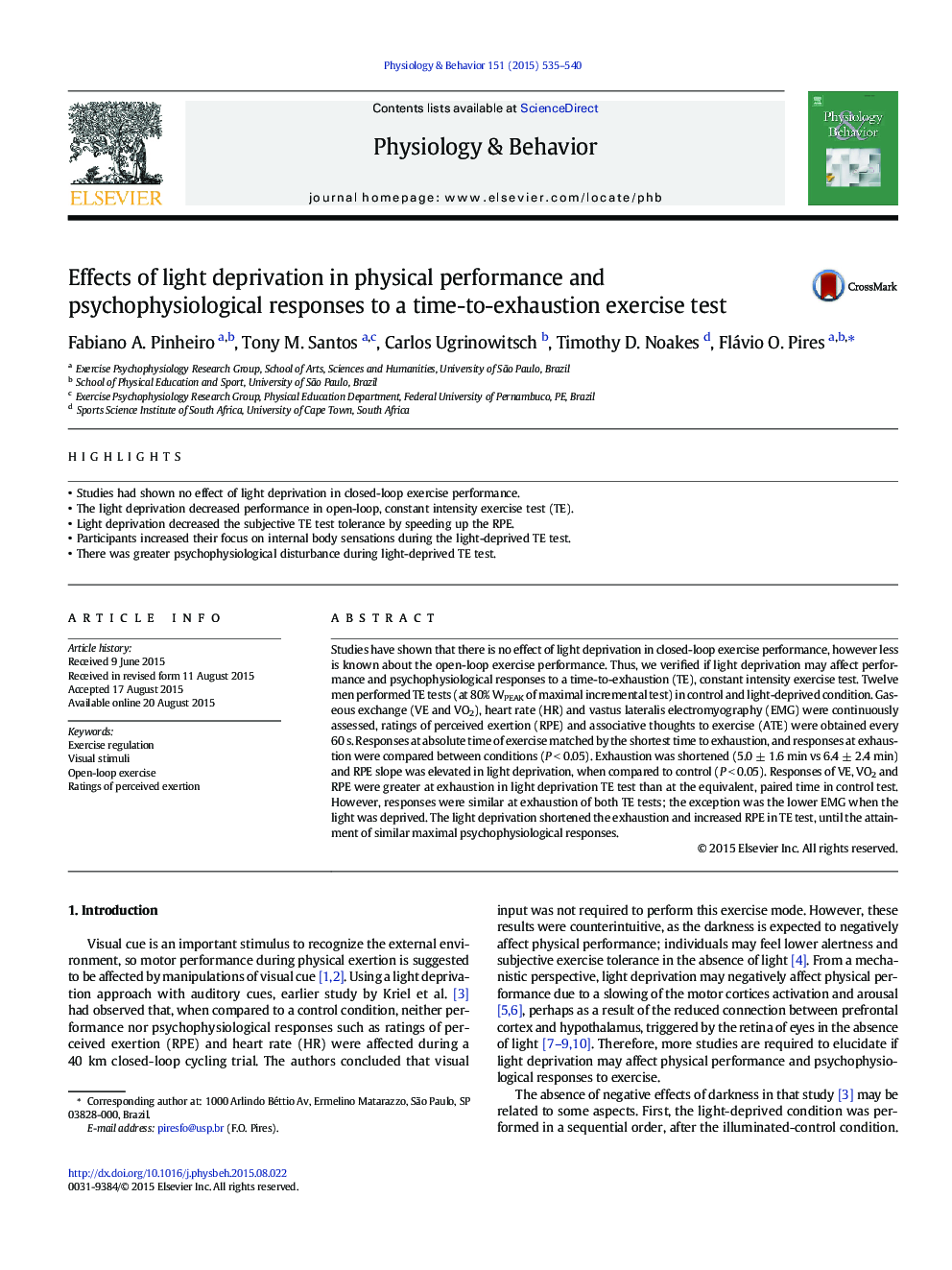| کد مقاله | کد نشریه | سال انتشار | مقاله انگلیسی | نسخه تمام متن |
|---|---|---|---|---|
| 5923354 | 1571166 | 2015 | 6 صفحه PDF | دانلود رایگان |
- Studies had shown no effect of light deprivation in closed-loop exercise performance.
- The light deprivation decreased performance in open-loop, constant intensity exercise test (TE).
- Light deprivation decreased the subjective TE test tolerance by speeding up the RPE.
- Participants increased their focus on internal body sensations during the light-deprived TE test.
- There was greater psychophysiological disturbance during light-deprived TE test.
Studies have shown that there is no effect of light deprivation in closed-loop exercise performance, however less is known about the open-loop exercise performance. Thus, we verified if light deprivation may affect performance and psychophysiological responses to a time-to-exhaustion (TE), constant intensity exercise test. Twelve men performed TE tests (at 80% WPEAK of maximal incremental test) in control and light-deprived condition. Gaseous exchange (VE and VO2), heart rate (HR) and vastus lateralis electromyography (EMG) were continuously assessed, ratings of perceived exertion (RPE) and associative thoughts to exercise (ATE) were obtained every 60 s. Responses at absolute time of exercise matched by the shortest time to exhaustion, and responses at exhaustion were compared between conditions (P < 0.05). Exhaustion was shortened (5.0 ± 1.6 min vs 6.4 ± 2.4 min) and RPE slope was elevated in light deprivation, when compared to control (P < 0.05). Responses of VE, VO2 and RPE were greater at exhaustion in light deprivation TE test than at the equivalent, paired time in control test. However, responses were similar at exhaustion of both TE tests; the exception was the lower EMG when the light was deprived. The light deprivation shortened the exhaustion and increased RPE in TE test, until the attainment of similar maximal psychophysiological responses.
Journal: Physiology & Behavior - Volume 151, 1 November 2015, Pages 535-540
